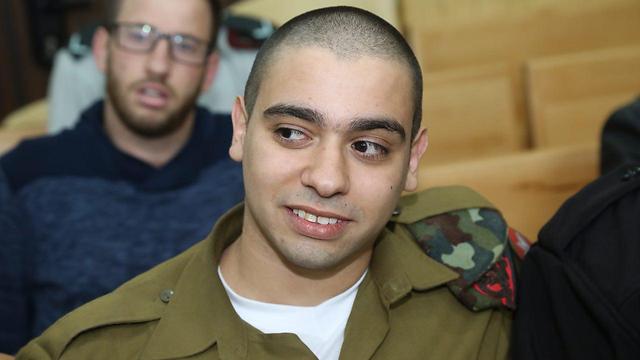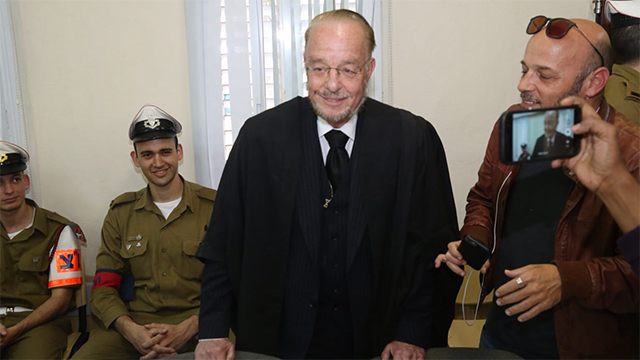Military Advocate General Sharon Afek to meet with prosecution team to discuss whether to appeal the 18-month sentence after Azaria himself decided to appeal his conviction.
The Military Advocate General is expected to appeal the lenient sentence given to IDF soldier Elor Azaria, who was convicted of manslaughter after killing a wounded terrorist in Hebron a year ago.
The military court sentenced Azaria to 18 months in prison, with a majority of two judges. The minority opinion held by the third judge argued to hand out a much harsher sentence. The 18-months sentence is half of what the prosecution demanded—no less than three years.
Military Advocate General Brig. Gen. Sharon Afek is expected to meet on Tuesday with the prosecution team, headed by Lt. Col. (res.) Nadav Weisman, to discuss whether to appeal the sentence, as Wednesday is the last day such an appeal could be filed.

Initially, the military prosecution was leaning towards settling for the lenient sentence, which came alongside a harsh conviction. But Azaria’s own appeal of his sentence, alongside the resignation of most of his defense team, led the prosecution to reconsider.
Three of Azaria’s four lawyers—including leading counsel Besserglick, as well as Ilan Katz and Karmit Scheiber—tended their resignation last week after the soldier and his family decided to appeal the sentence against the advice of the three litigators, who favored asking to mitigate his sentence or requesting pardon from the president.

Azaria’s remaining lawyer, Yoram Sheftel, leveled harsh accusations against the Military Advocate General, claiming that Afek “threateningly blackmailed” the defense time.
“What led to the dramatic change in the position of the other litigators was a meeting with the head military prosecutor on Sunday, in which we were told ‘if you don’t file an appeal, neither will the IDF,'” Sheftel claimed in a press conference on Wednesday.

He attacked the tit-for-tat proposal, saying, “This is an outrageous assertion with a moral aspect—threats and extortion.”
Sheftel appealed the manslaughter conviction on behalf of Azaria last week, claiming there was evidence the judges had allegedly ignored, as well as claiming the investigation by the IDF’s Criminal Investigation Division (CID) was biased in a way that established the suspicions against Azaria.
The military prosecution was also unhappy with Azaria’s request, which was granted by the court, to postpone starting to serve his sentence until a decision is made on his appeal. The prosecution initially objected the move, but eventually relented and removed its objection.
As reported by Ynetnews
